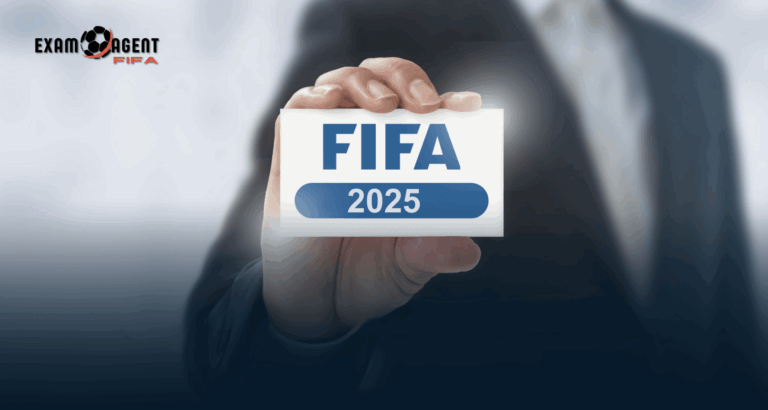In 2015, A Tumultuous Change in the Role of Agents
10 measures that will revolutionize the profession of FIFA agent. Back in 2015, the profession of football agents witnessed a deregulation through a directive, allowing federations to govern the activity within their respective countries. This major shift had numerous repercussions.
Recently, FIFA has made it clear that they intend to regain control and once again regulate the activity of football player agents. In this light, they are currently working on a draft regulation, which IPAF has had the chance to review.
Here, we outline the 10 measures set to revolutionize the role of FIFA agents.
1- A Profession Once Again Regulated by FIFA
FIFA will now regulate access to the profession of sports agent, through several conditions:
- Registration on a FIFA platform as an individual and not as a legal entity.
- Adherence to eligibility criteria, such as not having practiced without a license in the past 24 months or having had stakes in sports betting companies.
- Successfully passing an examination organized by FIFA, the syllabus of which will be communicated via directive.
- Payment of a fee set each year by directive, currently estimated at 600 CHF.
- Mandatory ongoing training during the first 5 years.
2- An Increasingly Structured Profession
Only a licensed agent will be able to perform the tasks reserved for agents. A lawyer will not be able to rely solely on their status as a lawyer to practice; they will need to obtain the license by taking the examination. This provision currently clashes with French regulations, and it remains to be seen if France will indeed transpose this measure.
It will still be possible to have an agency, but only the licensed agent will be able to perform the tasks of agents within the agency. In the case of a transfer, the agent will need to indicate their name, the client’s name, and their license number.
To learn more about these measures and how they might impact your career as a sports agent, visit our website and contact us for more information.
3- Beware of the Representation Contract!
Representation of a client will only be possible after concluding a contract with them. Before finalizing, the agent must remind the client that they can seek legal advice regarding the representation contract they are about to sign and obtain confirmation whether or not they consulted with a legal advisor regarding this contract. This measure is quite restrictive and is rarely found in other sectors of activity. However, it will be very easy to overcome this constraint by directly inserting into the contract a clause indicating that the player has acknowledged all terms of the contract and has chosen not to consult a legal advisor.
In the case of a coach or a player, the representation contract will have a maximum duration of two years and cannot be automatically renewed. It cannot be terminated without just cause, and if breached, the party responsible for the termination could face sanctions. The contract cannot prohibit the player from negotiating independently with a club if they wish to do so.

4- Major Change for Minors
It will be permissible to contract with a minor player no earlier than 6 months before the player has the opportunity to sign their first professional contract. Failing to adhere to this, agents are at risk of a fine and a 2-year suspension of their license. If an agent wishes to represent a minor or a club in a transaction involving a minor player, they must have completed a training course pertaining to such operations.
5- Dual Mandates: Prohibition, Exception, and Commission
The principle set by FIFA is the inability to represent two parties in the same transaction. An exception is allowed: the dual representation of the purchasing club and the player or coach. When an agent acts for both a club and a player/coach (the permitted dual mandate scenario), the club can only pay a maximum of 50% of the commission.
To learn more about these measures and how they might impact your career as a sports agent, please visit our website and contact us for further details.
6- Remuneration (bis): A Glass Ceiling
Depending on the transaction they have facilitated, the agent will be compensated as follows:
- If the salary of the player or coach is less than 200,000 USD or equivalent: 5% of the remuneration, 10% of the remuneration in the case of an authorized dual mandate, and 10% of the release club’s transfer fee.
- If the salary of the player or coach exceeds 200,000 USD or equivalent: 3% of the remuneration, 6% of the remuneration in case of an authorized dual mandate, and 10% of the release club’s transfer fee.
The commission ceiling will be calculated based on fixed remuneration and not contingent payments.
Given the payment terms, an agent will be compensated by an authorized dual mandate to reach a maximum of either 10% or 6%, depending on the circumstances.
This ceiling will apply to contract extensions or even transfers of free players, because in the case of a transfer with a fee, the most advantageous option would be to append the commission to the transfer fee. This isn’t the most common practice currently, but it will become so if the regulation is enacted as it stands.
The impending battle will aim to raise the percentage to 5% for each party in order to once again reach the 10% ceiling, regardless of the situation (transfer fee or salary).
7- Client-Agent: A Monogamous Relationship on the Horizon
An agent will not be able to solicit a player or coach who is under an exclusive contract with another agent. An exception is made when the contract between the player or coach and the agent expires in less than 2 months; in this case, it will be permissible to approach the player or coach, and even to conclude a contract with them.
This union must be formalized on the FIFA platform. The representation contract must be declared within 14 days of its

8- Remuneration: The Player Truly Becomes the Payer
Only the agent’s client will now be able to pay the agent, without third-party intervention. Thus, a club can no longer substitute for the player to pay the agent as was previously permitted. However, an exception is made for players earning less than 200,000 dollars annually.
The player can authorize the club to directly deduct the amount invoiced by the agent for their services in the transaction from their salary. This measure could thereby facilitate the recovery of commissions and ensure their payment is secure.
The contract between the agent and the client must specify the remuneration. The final payment should not exceed what was agreed upon in this contract, and the commission will be paid on a prorated basis.
9- Disputes Settled in-house
In the event of a dispute, there will be an option to address it before the FIFA’s Agents Chamber, but three conditions must be met:
- The dispute must be of international nature. If not, the concerned association will have jurisdiction.
- The request must be filed in accordance with the FIFA Football Tribunal’s regulations;
- The dispute needs to be declared within the statute of limitations period: 2 years from when the incident occurred.
10- Former Agents and the New World
An agent who holds a license from the time when FIFA organized the examination (no later than 2015) will be exempted from taking the new exam. However, they must still apply for a new license, meet eligibility criteria, and provide evidence of their work in the role since 2015.
Agents who received a license after 2015 in a country that implemented a regulatory system in line with national legislation can obtain the FIFA license. This is contingent upon the national association having instituted an examination. It will be the responsibility of this association to send an application for the recognition of the licensing system established in the country to the FIFA General Secretariat.
To be exempted from the new FIFA agent exam and to practice, the national licensing system must have been recognized by FIFA. Proof of authorization to operate as an agent under this national licensing system, set up by the association, must also be presented. In such cases, the agent will also be exempt from the FIFA examination.
To learn more about this measure and how it could impact your career as a sports agent, please visit our website and contact us for further details.







